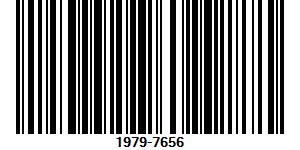ANALISIS KOMPARATIF UX DESIGN PADA PLATFORM EDUKASI ONLINE
DOI:
https://doi.org/10.30989/teknomatika.v13i1.1138Keywords:
Analisis, Pengalaman Pengguna, Kuesioner Pengalaman Pengguna, Focus Group Discussion, Q&AAbstract
User experience is the result of what the user feels and thinks when using a product or service, and makes the user experience subjective, therefore the user experience (user experience) can be tested in conjunction with other tests to get an objective assessment of the user when can be done directly with the product. This study will discuss the user experience using the User Experience Questionnaire and Focus Group Discussion methods. The process to be carried out is by using the Brainly and Quora applications obtained from the UEQ and FGD test questionnaires through interviews and data interviews from questionnaires. Based on the results of this study, the results of the analysis and comparisons with UEQ and FGD were obtained. The first test objectively used direct testing to respondents using the UEQ questionnaire which has 6 scales, namely: attractiveness, efficiency, perspective, dependability, stimulation and novelty, which are given to 11 respondents. Second, subjective testing using Focus Group Discussion for perceptions and more detailed user problems with interviews. From the second test conducted, it can be denied that the Brainly application is superior to Quora.
References
[2] M. Schrepp, “User Experience Questionnaire Handbook Version 7,” The UEQ, 2019.
[3] I. K. Putri, S. H. Wijoyo, dan Y. T. Mursityo, “Analisis Usability dan Pengalaman Pengguna Pada Aplikasi pemesanan Budget Hotel Menggunakan User Experience questionnaire (UEQ)(Studi Kasus Pada Airy Rooms),” Jurnal Pengembangan Teknologi Informasi dan Ilmu Komputer e-ISSN, vol. 2548, hlm. 964X, 2019.
[4] S. V. Izabal, I. Aknuranda, dan H. M. Az-Zahra, “Evaluasi dan Perbaikan User Experience Menggunakan User Experience Questionnaire (UEQ) dan Focus Group Discussion (FGD) pada Situs Web FILKOM Apps Mahasiswa Fakultas Ilmu Komputer Universitas Brawijaya,” Jurnal Pengembangan Teknologi Informasi dan Ilmu Komputer e-ISSN, vol. 2548, hlm. 964X, 2018.
[5] A. L. T. Adinegoro, R. I. Rokhmawati, dan H. M. Az-Zahra, “Analisis Pengalaman Pengguna pada Website E-commerce Dengan Menggunakan Usability Testing dan User Experience Questionnaire (UEQ)(Studi pada Lazada. co. id, Blibli. com dan JD. id),” Jurnal Pengembangan Teknologi Informasi dan Ilmu Komputer e-ISSN, vol. 2548, hlm. 964X, 2018.
[6] A. Dharmawan dan A. F. Sitorus, “Studi Komparatif User Experience Desain Antar Muka Pengguna Aplikasi Mobile Berdasarkan Elemen Desain Studi Kasus Aplikasi Grab Dan Gojek,” Jurnal Sistem Informasi, vol. 1, no. 2, hlm. 15–24, 2019.
[7] E. Choi dkk., “Understanding user motivations for asking and answering a question on brainly, online social learning network,” IConference 2016 Proceedings, 2016.
[8] M. Audi, R. I. Rokhmawati, dan H. M. Az-Zahra, “Analisis aspek usability dan user experience website dan aplikasi mobile radio streaming (studi pada website dan aplikasi mobile Radio Prambors),” Jurnal Pengembangan Teknologi Informasi dan Ilmu Komputer e-ISSN, vol. 2548, hlm. 964X, 2018.
[9] S. Patil dan K. Lee, “Detecting experts on Quora: by their activity, quality of answers, linguistic characteristics and temporal behaviors,” Social network analysis and mining, vol. 6, hlm. 1–11, 2016.
[10] I. R. Munthe, B. H. Rambe, R. Pane, D. Irmayani, dan M. Nasution, “UML Modeling and Black Box Testing Methods in the School Payment Information System,” Jurnal Mantik, vol. 4, no. 3, hlm. 1634–1640, 2020.










